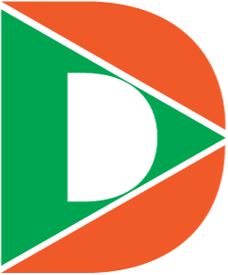Why Fats, Oils and Grease are Bad for Your Septic System and Plumbing?
Introduction
When you are running a commercial kitchen, it will produce a huge quantity of fats, oils and grease. It can come from the oil, animal fat, lard, salad dressing, mayonnaise, butter, gravy, sour dressing, and so on. If this FOG is poured on the drain, it will take some time to cool down and then it will create clogs in the drain. When it clogs your drain, it will create many other problems for you.
If the FOG creates clogs in the drain, then the wastewater will become stagnant in your sink. The manholes that become clogged up with FOG will overflow. As a result, your yard, street, or adjacent area can be exposed to waste. And this will create contamination of groundwater. If the FOG goes into your septic system, it will become solid there too. And this will need frequent pumping.
Grease Trap Installation To Keep FOG Away
To make sure that your septic system and the plumbing are not getting clogged up and the surrounding areas of your restaurant, café, or commercial eatery remain uncontaminated, you need to install a grease trap. This will collect the FOG from the wastewater that will come out of your commercial eatery and let the water flow in the sewer system. Grease trap installation will keep the place hygienic.
How FOG will Affect Your Septic System
Septic tank is made only for collecting and breaking down the tissue and the waste. With the activity of bacteria, the waste is treated and broken down to create the scum layer. If the FOG gets into the system it cannot be broken down by the bacteria. So, it will float up to the top of the tank. Then it creates the scum layer. With FOG, the scum layer becomes too thick. And that is why the FOG is forced out of the tank. This can get into the groundwater, severely contaminating it.
In the septic system, the sludge particles might release gas. If the gas bubbles are released, these particles come back to the sludge. If the scum layer becomes leathery due to the increased trapping of more sludge particles, it will become quite difficult to clean and pump out.
The septic tank must retain wastewater so that the suspended solids can finally settle into the sludge layer. If the retention time is more, it will help the microbes to break the organic waste more. But if the sludge layer becomes too thick due to the presence of FOG, then the retention time of the wastewater will decrease. The wastewater will be forced out on the ground and this can contaminate the groundwater.
To avoid this whole situation, you need to install grease traps Ireland for your commercial establishment. It will keep the grease away from the septic system and the groundwater will remain free of contamination.
Grease Traps for Commercial Kitchen
Every year, a lot of money is wasted to deal with the plumbing issues in restaurants and other commercial kitchens. To manage these issues and to keep the groundwater healthy and hygienic, the government has made installing grease traps mandatory for commercial kitchens. The job of the grease trap is to accumulate the grease from the wastewater and then release the water into the sewer system.
In Ground Steel Grease Traps
This type of grease trap is installed outside the kitchen and under the ground. Their job is to remove FOG from the wastewater that has been released from the sink, kitchen floor and dishwasher. The capacity of these grease traps are more than the ones that are installed in the kitchen. These grease traps are for restaurants, cafes and other types of commercial kitchens. The grease trap cleaning will be done for this by the professional grease trap cleaner
Choose the right grease trap for your commercial kitchen and maintain a healthy and hygienic ambiance.

As a DIGITALTECHSIDE author, the majority of our articles have been focused on technology, blogging, business, lifestyle, social media, web design and development, e-commerce, money, health, education, entertainment, SEO, travel, and sports.
Contact us at digitaltechside@gmail.com if you have questions of anything.




